Monday, 19 June, 2023 08:30 - 10:00
TUT1: Improving the Energy Density of Batteries with Silicon-Based Anodes
Detailed AgendaThe key challenges in the use of silicon-based anodes, as well as progress in the implementation of silicon and what can we expect in the future. The latest improvements in other battery components are required to maximize the benefit of silicon-based anodes.
Dee Strand, PhD, CSO, R&D, Wildcat Discovery Technologies, Inc.
08:30 Improving the Energy Density of Batteries with Silicon-Based Anodes
Dee Strand, PhD, CSO, R&D, Wildcat Discovery Technologies, Inc.
The key challenges in the use of silicon-based anodes, as well as progress in the implementation of silicon and what can we expect in the future. The latest improvements in other battery components are required to maximize the benefit of silicon-based anodes.
INSTRUCTOR BIOGRAPHIES:
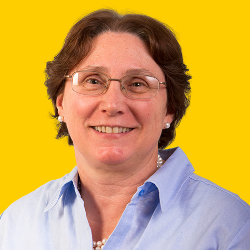 Dee Strand, PhD, CSO, R&D, Wildcat Discovery Technologies, Inc.
Dee Strand, PhD, CSO, R&D, Wildcat Discovery Technologies, Inc.
Dr. Dee Strand is a Senior Scientist at Wildcat Discovery Technologies. Dr. Strand has over twenty years of experience in materials research, development, and commercialization, primarily in the areas of energy storage and electronic applications. Prior to joining Wildcat in 2013, Dr. Strand served as a Research Fellow at Dow Chemical, where she was the technical lead in Dow Energy Materials, as well as the Principal Investigator on external research programs with universities and national labs on battery materials. Dr. Strand also has extensive experience in patent analysis and technical due diligence of new technologies. Dr. Strand completed her PhD in Analytical Chemistry at the University of Wisconsin-Madison, under the supervision of Professor John Schrag. Her PhD research focused on rheology and birefringence of polymeric solutions. Dr. Strand also holds a Master of Science degree in Chemistry from the California Institute of Technology and a Bachelor of Science degree in Chemistry from North Dakota State University.
TUT2: 21st Century Battery Raw Materials
Detailed AgendaA 90-minute deep-dive and Q&A with Benchmark Mineral Intelligence analysts into the lithium, cobalt, and graphite anodes. A raw material evolution in the way these specialty chemicals are mined, processed, and sold – with the emergence of exchange-traded models and long-term contracts – is occurring.
Daisy Jennings-Gray, Senior Price Analyst, Benchmark Mineral Intelligence
Caspar Rawles, Chief Data Officer, Benchmark Mineral Intelligence
08:30 21st Century Battery Raw Materials Global Market Overview
Daisy Jennings-Gray, Senior Price Analyst, Benchmark Mineral Intelligence
Caspar Rawles, Chief Data Officer, Benchmark Mineral Intelligence
A 90-minute deep-dive and Q&A with Benchmark Mineral Intelligence analysts into the lithium, cobalt, and graphite anodes. A raw material evolution in the way these specialty chemicals are mined, processed, and sold – with the emergence of exchange-traded models and long-term contracts – is occurring. Here, Benchmark breaks down the supply chain for each of these raw materials - their challenges and opportunities. There will be individual dedicated presentations on the supply chains for lithium, cobalt, and graphite anode.
INSTRUCTOR BIOGRAPHIES:
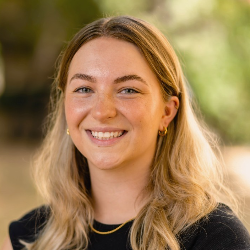 Daisy Jennings-Gray, Senior Price Analyst, Benchmark Mineral Intelligence
Daisy Jennings-Gray, Senior Price Analyst, Benchmark Mineral Intelligence
Daisy Jennings-Gray is a Senior Price Analyst at Benchmark Mineral Intelligence focussed on the lithium, graphite and anode markets. Daisy holds an MSci in Geology from Imperial College London, and has previous experience in European natural gas price reporting.
 Caspar Rawles, Chief Data Officer, Benchmark Mineral Intelligence
Caspar Rawles, Chief Data Officer, Benchmark Mineral Intelligence
Caspar holds the position of Chief Data Officer at Benchmark Mineral Intelligence, a London-based leading research and consultancy firm focusing on the lithium ion battery to EV supply chain. Caspar leads a team that collects and assess sensitive market price data on lithium, graphite, cobalt, nickel, cathodes and anodes for use in industry supply contracts and negotiations. As a result, Benchmark is most famous for setting the lithium industry's reference price and is the world's leading Price Reporting Agency (PRA) for the world's battery
supply chain.
TUT3: BMS & Charging (instructor will be presenting virtually)
Detailed AgendaThis tutorial will focus on intelligent state estimation and control in lithium-ion battery management systems for transportation electrification applications.
Sheldon Williamson, PhD, Professor & Canada Research Chair, Electrical & Computer & Software Engineering, University of Ontario Institute of Technology
08:30 Battery Management Systems
Sheldon Williamson, PhD, Professor & Canada Research Chair, Electrical & Computer & Software Engineering, University of Ontario Institute of Technology
This tutorial will focus on intelligent state estimation and control in lithium-ion battery management systems for transportation electrification applications. The current issues and challenges will also be discussed to highlight the scope of future research and development.
INSTRUCTOR BIOGRAPHIES:
 Sheldon Williamson, PhD, Professor & Canada Research Chair, Electrical & Computer & Software Engineering, University of Ontario Institute of Technology
Sheldon Williamson, PhD, Professor & Canada Research Chair, Electrical & Computer & Software Engineering, University of Ontario Institute of Technology
Sheldon S. Williamson (Fellow, IEEE) received the B.E. (Hons.) degree in electrical engineering from the University of Mumbai, Mumbai, India, in 1999, and the MS and PhD degrees (Hons.) in electrical engineering from the Illinois Institute of Technology, Chicago, IL, USA, in 2002 and 2006, respectively. He is currently a professor with the Department of Electrical, Computer and Software Engineering and the Director of Smart Transportation Electrification and Energy Research (STEER) Group, Faculty of Engineering and Applied Sciences, Ontario Tech University, Oshawa, ON, Canada. His current research interests include advanced power electronics, electric energy storage systems, and motor drives for transportation electrification. He holds the prestigious NSERC Canada Research Chair in electric energy storage systems for transportation electrification.
Monday, 19 June, 2023 10:30 - 12:00
TUT5: Cell & Pack Design for xEVs
Detailed AgendaThis tutorial will give an overview of battery systems design. An overall product development process will be discussed for a typical system.
Kevin Konecky, Battery and Energy Storage Systems Consultant, Total Battery Consulting
10:30 Cell and Pack Design
Kevin Konecky, Battery and Energy Storage Systems Consultant, Total Battery Consulting
This tutorial will give an overview of battery systems design. An overall product development process will be discussed for a typical system. Design aspects of each individual subsystem will be explored with cost impacts of different design choices. Testing, validation, and designing for safety will be other key areas of discussion.
INSTRUCTOR BIOGRAPHIES:
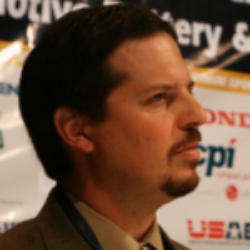 Kevin Konecky, Battery and Energy Storage Systems Consultant, Total Battery Consulting
Kevin Konecky, Battery and Energy Storage Systems Consultant, Total Battery Consulting
Mr. Konecky brings over 20 years of xEV experience to his work, having worked on multiple complex designs for battery system development, charging system integration, and high-voltage powertrain integration. He is skilled in new product design and development, product testing, product safety, integration of multiple sub-systems for vehicles, new product launches and has expanded his skillset beyond batteries into power electronics. His experience in batteries includes multiple technologies (Li-ion, NiMH, UltraCapacitors, Lead-Acid). Mr. Konecky has worked for multiple OEM and Tier 1 battery suppliers (GM, Fisker, Byton, Cobasys, EnerDel, Lockheed Martin) and has a BS in Electrical Engineering from Clarkson University (Potsdam, NY) and MS from Purdue (IUPUI - Indianapolis, IN).
TUT6: xEV Lithium-ion Recycling Methods
Detailed AgendaThis tutorial will comprehensively address technologies of pyrometallurgy, hydrometallurgy, hybrid approaches, and direct recycling. The instructor will introduce these and discuss them in light of cost goals and market realities.
Sascha Nowak, PhD, Head of Analytics & Environmental, Electrochemical Energy Technology, University of Münster
Steve Sloop, PhD, President, OnTo Technology LLC
10:30 xEV Lithium-ion Recycling Methods
Sascha Nowak, PhD, Head of Analytics & Environmental, Electrochemical Energy Technology, University of Münster
Steve Sloop, PhD, President, OnTo Technology LLC
By 2025 the original lithium-ion battery manufacturing industry is on course to reach $98 billion worldwide. However, with so many uncertainties, the recycling market has projections of $14 to $40 billion. Recycling must be economically sustainable with future $10/kg cathodes, can it achieve such a goal? A supportive recycling industry will be expected to (1) operate with end-of-life batteries as an asset (2) produce cost-competitive elements, electrodes, or electrode precursor materials, (3) safely address large-scale throughputs, and (4) accommodate low cobalt or no cobalt cathode formulations. This tutorial will comprehensively address technologies of pyrometallurgy, hydrometallurgy, hybrid approaches, and direct recycling. The instructor will introduce these and discuss them in light of cost goals and market realities.
INSTRUCTOR BIOGRAPHIES:
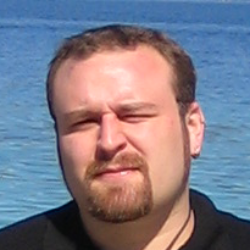 Sascha Nowak, PhD, Head of Analytics & Environmental, Electrochemical Energy Technology, University of Münster
Sascha Nowak, PhD, Head of Analytics & Environmental, Electrochemical Energy Technology, University of Münster
Dr. Nowak studied Chemistry at the University of Münster and got his Ph.D. in Analytical Chemistry. After his doctorate, he joined the working group of Professor Winter at the MEET Battery Research Center at the University of Münster in 2009 as a postdoctoral researcher, where he established the Analytical department. From 2010-12, he was the Head of the Analytics and Recycling competence areas, and since 2012, he has held a position at the MEET Battery Research Center as Head of the Analytics and Environment division, which mainly focuses on electrolyte aging, transition metal migration and surface investigations, recycling and second life, as well as toxicological investigations.
 Steve Sloop, PhD, President, OnTo Technology LLC
Steve Sloop, PhD, President, OnTo Technology LLC
Steve Sloop has pioneered comprehensive methods to improve safety and efficiency in recycling lithium-ion batteries and materials. These include deactivation of lithium-ion batteries to eliminate hazards in transportation and storage; electrolyte extraction; electrode harvesting and separation; and cathode-healing™, which is a direct method to reintroduce lithium, structure, and performance to scrap electrodes.
TUT7: Battery Safety and Abuse Tolerance Validation
Detailed AgendaThis training incorporates Shmuel De-Leon’s and other experiences on battery safety representing over 26 years of work in the field. The motivation behind the training is to provide attendees with the knowledge needed to safely handle the batteries in their organization and to support reduction in safety events.
Shmuel De-Leon, CEO, Shmuel De-Leon Energy Ltd.
10:30 Battery Safety and Abuse Tolerance Validation
Shmuel De-Leon, CEO, Shmuel De-Leon Energy Ltd.
Batteries have become daily use components for many applications. New growing segments like EV and grid storage batteries extend the traditional ordinary battery applications. In the race for energy density, we shouldn't forget safety. For example, the Samsung Galaxy Note 7 battery safety case. Unfortunately, we face daily safety events with injuries and severe damage. This workshop focuses on portable, stationary, and automotive battery safety along the battery cycle life (acceptance, testing, assembly, use, transportation, and disposal). This training incorporates Shmuel De-Leon’s and other experiences on battery safety representing over 26 years of work in the field. The motivation behind the training is to provide attendees with the knowledge needed to safely handle the batteries in their organization and to support reduction in safety events.
INSTRUCTOR BIOGRAPHIES:
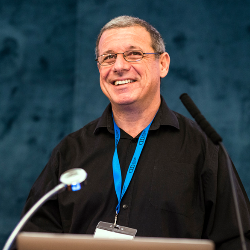 Shmuel De-Leon, CEO, Shmuel De-Leon Energy Ltd.
Shmuel De-Leon, CEO, Shmuel De-Leon Energy Ltd.
Shmuel De-Leon, Founder and CEO of Shmuel De-Leon Energy Ltd., is a leading international expert in the business of energy storage. Prior to founding the company, for over 21 years, Shmuel held various positions as an energy storage, electronic engineering, and quality control team manager. Shmuel holds a B.Sc. in Mechanical Engineering from Tel Aviv University, and an M.B.A. in Quality Control and Reliability Engineering from the Technion Institute in Haifa, as well as an Electronic Technician's diploma.
TUT8: In-Depth Analysis of the Chinese xEV Battery Industry
Detailed AgendaThis tutorial will try to provide a whole picture of the Chinese EDV battery market including policies & regulations, future forecasts, competitive analysis, battery technology strategies, upstream supply chain, and positioning for foreign enterprises.
Mark H.L. Lu, PhD, Senior Industrial Analyst, Industrial Economics & Knowledge Center, Industrial Technology Research Institute
10:30 In-Depth Analysis of the Chinese xEV Battery Industry – From Applications to Upstream Materials
Mark H.L. Lu, PhD, Senior Industrial Analyst, Industrial Economics & Knowledge Center, Industrial Technology Research Institute
As the world’s biggest EDV market, Chinese xEV industry has become the most important pioneering target. However, specially planned economy, localized regulations, and multiple business models exist and make international companies’ decision-making more difficult. Therefore, this tutorial will try to provide a whole picture of the Chinese EDV battery market including policies & regulations, future forecasts, competitive analysis, battery technology strategies, upstream supply chain, and positioning for foreign enterprises.
INSTRUCTOR BIOGRAPHIES:
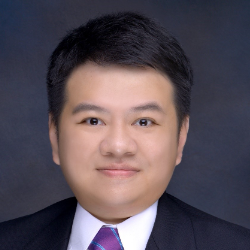 Mark H.L. Lu, PhD, Senior Industrial Analyst, Industrial Economics & Knowledge Center, Industrial Technology Research Institute
Mark H.L. Lu, PhD, Senior Industrial Analyst, Industrial Economics & Knowledge Center, Industrial Technology Research Institute
Mr. Lu graduated from Department of Business Administration in National Cheng-chi University, Taiwan, and continued to acquire an MBA degree from National Sun Yat-sen University. His first job concerned with the optical film in China for two years, then came back Taiwan to serve Industrial Technology Research Institute (ITRI) as an analyst in Industry, Science and Technology International Strategy Center (ISTI) until now. As a certified industrial analyst of the biggest think-tank in Taiwan, he is responsible for the research about Taiwan battery-related industry, including material, cell, pack and related applications. Not only handling the official government statistics about Taiwan battery industry, sometimes he also plays a role to provide consulting suggestions for Taiwan government and firms. From 2010 to June 2020, he served as the secretary-general of the Taiwan Battery Association.
Monday, 19 June, 2023 13:00 - 14:30
TUT9: Solid-State Batteries
Detailed AgendaThis tutorial will give an overview of the status of solid-state battery development. The scientific basis for solid-state batteries will be explained in detail.
Juergen Janek, PhD, Professor, Solid-State Ionics & Electrochemistry, Justus Liebig University, Giessen
13:00 Solid-State Batteries: Solid Electrolytes, Electrode Interfaces, and Full Cells
Juergen Janek, PhD, Professor, Solid-State Ionics & Electrochemistry, Justus Liebig University, Giessen
This tutorial will give an overview of the status of solid-state battery development. The scientific basis for solid-state batteries will be explained in detail. The different types of solid electrolytes (oxides, sulfides, polymers) will be introduced, and recent trends will be highlighted.
INSTRUCTOR BIOGRAPHIES:
 Juergen Janek, PhD, Professor, Solid-State Ionics & Electrochemistry, Justus Liebig University, Giessen
Juergen Janek, PhD, Professor, Solid-State Ionics & Electrochemistry, Justus Liebig University, Giessen
Jürgen Janek has a chair for Physical Chemistry at Justus Liebig University in Giessen (JLU), is director of the JLU Center for Materials Research and Scientific Director of the BELLA lab at KIT, Karlsruhe. He was visiting professor at Seoul National University (South Korea), Tohoku University (Sendai, Japan), and D´Aix-Marseille (France), and he was awarded with an honorary doctorate from TU Delft (Netherlands). He holds numerous patents, has published more than 400 peer-reviewed papers and got numerous awards. His research interests focus on the physical chemistry of inorganic solids, solid state ionics, and reactivity, specifically on the properties of mixed ionic-electronic conductors, defect chemistry of ionic materials, kinetics of solid-state reactions, and solid-solid interfaces. In recent years, his research is focused strongly to the chemistry of battery materials, solid electrolytes, and solid-state batteries and operando studies of batteries. He is scientific coordinator of the German Cluster of Competence for Solid State Batteries FESTBATT funded by BMBF (Federal Ministry for Education and Research) and member of the DFG Cluster of Excellence POLIS at Ulm/Karlsruhe.
TUT10: Na-ion Batteries: Materials and State of the Art
Detailed AgendaThis tutorial gives an overview on Na-ion battery development with the focus on materials (anode, cathode) and electrolytes.
Philipp Adelhelm, PhD, Professor, Institute of Chemistry, Humboldt-University Berlin
13:00 Na-ion Batteries: Materials and State of the Art
Philipp Adelhelm, PhD, Professor, Institute of Chemistry, Humboldt-University Berlin
Na-ion batteries (SIB) are rapidly developing as potential alternatives to complement Li-ion battery (LIB) technology. The energy densities of SIB are close to LIB but at the same time they avoid or reduce the amounts of many critical elements used for LIB. Due to their conceptual similarity, SIB can be produced on the same manufacturing lines like LIB, which is a great advantage for market implementation. This tutorial gives an overview on Na-ion battery development with the focus on materials (anode, cathode) and electrolytes.
INSTRUCTOR BIOGRAPHIES:
 Philipp Adelhelm, PhD, Professor, Institute of Chemistry, Humboldt-University Berlin
Philipp Adelhelm, PhD, Professor, Institute of Chemistry, Humboldt-University Berlin
Philipp Adelhelm is a professor for physical chemistry at Humboldt-University Berlin. His current main interest is research on sustainable batteries. After studying materials science at the University of Stuttgart, he moved to the Max Planck Institute of Colloids and Interfaces in Potsdam (department of Professor Antionetti / Smarsly, 2005-2007) for his doctoral project. This was followed by a 2-year postdoctoral stay at the University of Utrecht (Professor de Jongh) and then a position as a junior research group leader at the Institute of Physical Chemistry of the Justus Liebig University in Giessen (Professor Janek, 2009-2015). From 2015-2019 he was a professor at the Institute for Technical Chemistry and Environmental Chemistry at the Friedrich Schiller University Jena. He has been a professor at the Institute for Chemistry at Humboldt-University since 2019, and heads a joint research group on operando battery analysis at the Helmholtz Zentrum Berlin (HZB).
TUT11: Battery Intelligence – Part 1
Detailed AgendaThis tutorial will cover critical techniques and analysis for making sure researchers extract the maximum information out of standard electrochemical testing data.
Kevin Wood, PhD, Senior Solutions Engineer, Voltaiq, Inc.
13:00 Battery Intelligence – Part 1
Kevin Wood, PhD, Senior Solutions Engineer, Voltaiq, Inc.
Agenda
1. Overview
2. Theoretical Capacity and Standard Reduction potentials
3. Charge, discharge V-T data
4. Rest Potentials
5. CVC1. Cycle Aging Data
INSTRUCTOR BIOGRAPHIES:
 Kevin Wood, PhD, Senior Solutions Engineer, Voltaiq, Inc.
Kevin Wood, PhD, Senior Solutions Engineer, Voltaiq, Inc.
Dr. Kevin N. Wood is a Sr. Solutions Engineer and Electrochemistry Expert for Voltaiq. He is also currently an adjunct professor of Mechanical Engineering at San Diego State University. Before joining Voltaiq Dr. Wood was both a Professor and CTO managing over $7.5 Million dollars of battery related government and industry sponsored research projects since 2018. He has 5 Patents in the energy storage space and 25 peer reviewed journal publications focused on electrochemical data analysis. His technological advances in characterization and electrochemical analysis have been highlighted by the National Academy of Engineering, PBS, and the Discovery channel. In 2018 his advances were awarded impact paper of the year by Nature Publishing for Future Lithium-based Batteries. In 2021 Dr. Wood gave a TEDx talk on “The Coming Battery Revolution”.
TUT12: The Rechargeable Battery Market: Value Chain and Main Trends
Detailed AgendaThis tutorial will present the 10-year automotive market forecasts from Avicenne and other analysts (micro|Hybrid|P-HEV|EV).
Fabrice Renard, Senior Advisor, Avicenne Energy
13:00 The Rechargeable Battery Market: Value Chain and Main Trends, 2022-2032
Fabrice Renard, Senior Advisor, Avicenne Energy
ABOUT THIS TUTORIAL:
This tutorial will present the 10-year automotive market forecasts from Avicenne and other analysts (micro|Hybrid|P-HEV|EV). Other coverage will include car makers’ strategies and advanced energy storage (advanced lead acid|supercap|NiMH|LIB). Additionally, LIB design for P-HEV & EV markets (cylindrical, prismatic, pouch/wounded, stacked, Z fold cells) and LIB cell, module & pack cost structure will be discussed.
TOPICS TO BE COVERED:
- The rechargeable battery market in 2022
- Battery market by application
- Electronic devices, xEV, e-bikes, power tools
- Stationary applications
- Raw material for lithium-ion battery supply chain
- Battery market forecasts, 2022-2032
- Focus on xEV market
- OEM supply chain
- xEV forecasts
- Impact of Li-ion batteries on lead acid battery market
- Conclusions
INSTRUCTOR BIOGRAPHIES:
 Fabrice Renard, Senior Advisor, Avicenne Energy
Fabrice Renard, Senior Advisor, Avicenne Energy
With more than 25 years of experience in business consultancy and management of chemical and advanced materials business in Belgium, Morocco, and China, Fabrice gained strong experience on strategy, M&A, manufacturing, marketing, finance, and innovation on high-growth new technology business. Prior joining AVICENNE in 2019, Fabrice was Chief Innovation Officer of the Prayon group. Over 10 years, he was in charge of the global R&D and innovation strategy based on sustainable major trends and declined on nutrition, water, precision farming, rare elements recovery, and energy. One of his core focus was the development of cathode materials. In this field, he earned a strong expertise on the battery value chain and served as COO of Belife, a joint venture with Umicore and as a director of Prayon Pulead Technology, a Chinese-based LFP manufacturer. He holds a master's in chemical engineering, a postgraduate diploma in business administration, an executive degree in tax law, and an executive master's in management.
Monday, 19 June, 2023 15:00 - 16:30
TUT13: Developing Optimal Lithium Rechargeable Cell Data Sheets
Detailed AgendaCell data sheets provided by battery manufacturers describe cell functions, performance, operational limits and safety prohibitions. This tutorial will focus on how to prepare and read an optimal lithium rechargeable data sheet and how to define and test each parameter.
Shmuel De-Leon, CEO, Shmuel De-Leon Energy Ltd.
15:00 Developing Optimal Lithium Rechargeable Cell Data Sheets
Shmuel De-Leon, CEO, Shmuel De-Leon Energy Ltd.
Cell data sheets provided by battery manufacturers describe cell functions, performance, operational limits and safety prohibitions. Device manufacturers rely on data sheets for cell selection and battery pack design. These data sheets provide critical information on function, performance and safety. It is also used for marketing purposes. We have prepared an optimal cell data sheet template for rechargeable lithium cells based on review of our extensive collection of data sheets. This tutorial will focus on how to prepare and read an optimal lithium rechargeable data sheet and how to define and test each parameter.
INSTRUCTOR BIOGRAPHIES:
 Shmuel De-Leon, CEO, Shmuel De-Leon Energy Ltd.
Shmuel De-Leon, CEO, Shmuel De-Leon Energy Ltd.
Shmuel De-Leon, Founder and CEO of Shmuel De-Leon Energy Ltd., is a leading international expert in the business of energy storage. Prior to founding the company, for over 21 years, Shmuel held various positions as an energy storage, electronic engineering, and quality control team manager. Shmuel holds a B.Sc. in Mechanical Engineering from Tel Aviv University, and an M.B.A. in Quality Control and Reliability Engineering from the Technion Institute in Haifa, as well as an Electronic Technician's diploma.
TUT14: Battery Intelligence – Part 2
Detailed AgendaThis tutorial will provide in-depth tools and analysis capabilities for extracting maximum mechanistic insight out of electrochemical data.
Kevin Wood, PhD, Senior Solutions Engineer, Voltaiq, Inc.
15:00 Battery Intelligence – Part 2
Kevin Wood, PhD, Senior Solutions Engineer, Voltaiq, Inc.
Agenda
1. Advanced Characterization Overview
2. DQDV3. Pulse Characterization
3. HPPC2. GITT
4. Battery Gnome
5. Meta Data to Performance
6. Machine Learning
INSTRUCTOR BIOGRAPHIES:
 Kevin Wood, PhD, Senior Solutions Engineer, Voltaiq, Inc.
Kevin Wood, PhD, Senior Solutions Engineer, Voltaiq, Inc.
Dr. Kevin N. Wood is a Sr. Solutions Engineer and Electrochemistry Expert for Voltaiq. He is also currently an adjunct professor of Mechanical Engineering at San Diego State University. Before joining Voltaiq Dr. Wood was both a Professor and CTO managing over $7.5 Million dollars of battery related government and industry sponsored research projects since 2018. He has 5 Patents in the energy storage space and 25 peer reviewed journal publications focused on electrochemical data analysis. His technological advances in characterization and electrochemical analysis have been highlighted by the National Academy of Engineering, PBS, and the Discovery channel. In 2018 his advances were awarded impact paper of the year by Nature Publishing for Future Lithium-based Batteries. In 2021 Dr. Wood gave a TEDx talk on “The Coming Battery Revolution”.
TUT15: Li-ion Cell Design and Manufacturing: Processes, Equipment and Quality Control (instructor will be presenting virtually)
Detailed AgendaThis tutorial will begin with an overview of Li-ion cell design for performance and manufacturability, including contrasting the performance and characteristics of commonly used materials. The tutorial will then lead to a detailed review of Li-ion cell manufacturing from incoming raw materials through final cell formation, aging, and shipment.
James Kaschmitter, CEO, SpectraPower LLC
15:00 Li-ion Cell Design and Manufacturing: Processes, Equipment and Quality Control
James Kaschmitter, CEO, SpectraPower LLC
This tutorial will begin with an overview of Li-ion cell design for performance and manufacturability, including contrasting the performance and characteristics of commonly used materials. The tutorial will then lead to a detailed review of Li-ion cell manufacturing from incoming raw materials through final cell formation, aging, and shipment.
INSTRUCTOR BIOGRAPHIES:
 James Kaschmitter, CEO, SpectraPower LLC
James Kaschmitter, CEO, SpectraPower LLC
James Kaschmitter is the CEO of SpectraPower, which he founded in 2002. SpectraPower operates a battery research facility in Livermore, CA that performs contract energy storage research, consulting and expert witness services for government, private companies, law firms, startups and investors. Jim has founded, or co-founded, several companies in the energy storage field. He began research in Li-ion batteries in 1989 at Lawrence Livermore National Laboratory (LLNL). He was co-founder and CEO of PolyStor Corporation starting in 1993. PolyStor is the only U.S. company to have commercially manufactured in high volume in the U.S. all form factors of lithium-ion cells, including cylindrical, prismatic and polymer. In 1997 Jim founded PowerStor Corporation to commercialize the carbon aerogel supercapacitor that he co-invented at LLNL. PowerStor supercapacitors are now manufactured and sold in high volume by Eaton Bussman. He founded UltraCell in 2002, which successfully developed the world’s first reformed methanol micro fuel cell. UltraCell’s micro fuel cells are currently manufactured and sold by Brentronics and are deployed with U.S military and intelligence units, and are in use in combat in the Middle East. Jim holds a master’s degree in Electrical Engineering from Stanford University and has a bachelor’s degree in the Physics Honors Program from the University of Utah. He holds more than 20 patents in the alternative energy field. He owns, maintains and operates an experimental aircraft and holds instrument and multi-engine ratings.
TUT16: Li-ion Battery Safety & Thermal Runaway (instructor will be presenting virtually)
Detailed AgendaThis tutorial/seminar is provided by Dr. Ahmad Pesaran with 25+ years of experience in lithium-ion battery R&D&D including safety testing and modeling with perspectives of his participation at USABC Technical Advisory Committee. He will provide the audience with information and understanding needed to handle Li-ion batteries safety in both their work at their companies and in products they deliver to the market.
Ahmad A. Pesaran, PhD, Chief Energy Storage Engineer, National Renewable Energy Laboratory
15:00 Li-ion Battery Safety & Thermal Runaway
Ahmad A. Pesaran, PhD, Chief Energy Storage Engineer, National Renewable Energy Laboratory
Significant growth of lithium-ion batteries (LIB) for electrified transportation and renewable grid are expected in the next 10 years. Due to the characteristics of current LIB technologies, there is potential of for thermal runaway and fires as evidenced by recent fires in Tesla Model S, Chevy Bolt, and grid storage system in an Arizona Utility. Increase severity of fire incidents with more advanced energy-dense LIBs, especially cathodes with higher Ni and anodes with silicon or lithium is expected. In this Tutorial/Seminar we will 1. discuss fundamental causes for safety issues leading to thermal runaway and fire, 2. review abuse behavior of cells and packs through characterization, testing, and modeling/simulations, 3. provide overview of approaches that could reduce safety risks and detect impending failures, and 4. provide references as a resource for accessing more information. This tutorial/seminar is provided by Dr. Ahmad Pesaran with 25+ years of experience in lithium-ion battery R&D&D including safety testing and modeling with perspectives of his participation at USABC Technical Advisory Committee. He will provide the audience with information and understanding needed to handle Li-ion batteries safety in both their work at their companies and in products they deliver to the market.
TOPICS TO BE COVERED:
- Li-ion Battery Introduction
a. Battery Fundamentals
b. Battery Chemistries
c. Cell Designs
- LIB Safety and Abuse
a. LIB Fires
b. Instigators for Thermal Runaway
c. Battery Abuse Characterization and Testing Equipment
d. Battery Abuse Modeling/Simulation Tools
- Approaches for Designing Safer Cells and Modules
- EV Pack and System Safety
- Remarks on Safe Handling of LIBs
INSTRUCTOR BIOGRAPHIES:
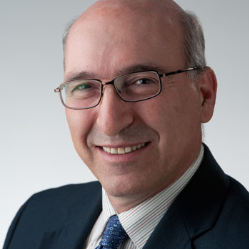 Ahmad A. Pesaran, PhD, Chief Energy Storage Engineer, National Renewable Energy Laboratory
Ahmad A. Pesaran, PhD, Chief Energy Storage Engineer, National Renewable Energy Laboratory
After receiving his Ph.D. from UCLA, Ahmad has been working at NREL on energy efficient technologies including electrified vehicles. Until 2017, Ahmad was the Manager of the Energy Storage Group researching science and engineering of high energy anodes and cathodes, battery thermal management, 3D electrochemical-thermal modeling, safety and thermal runaway modeling, battery second use, techno-economic analysis of batteries for EVs; he led the Computer-Aided Engineering for Electric Drive Vehicle Batteries for Department of Energy (DOE).Between 2016 and 2018 he was detailed at the DOE's Vehicle Technologies Office (VTO) as technical advisor to the Battery program supporting battery processing, extreme fast charging and recycling. He was the Administrator for the first Phase of the DOE Battery Recycling Prize.Currently, Ahmad is pursuing energy storage business development activities for NREL and supports VTO with battery processing, manufacturing, solid electrolyte, and low-cobalt cathode projects.